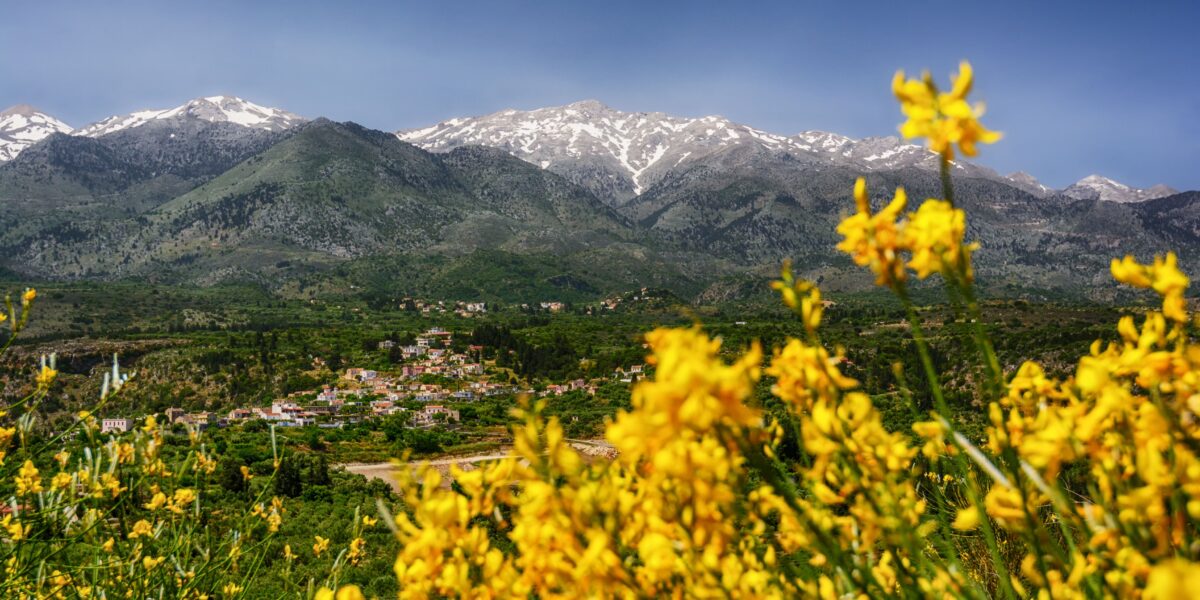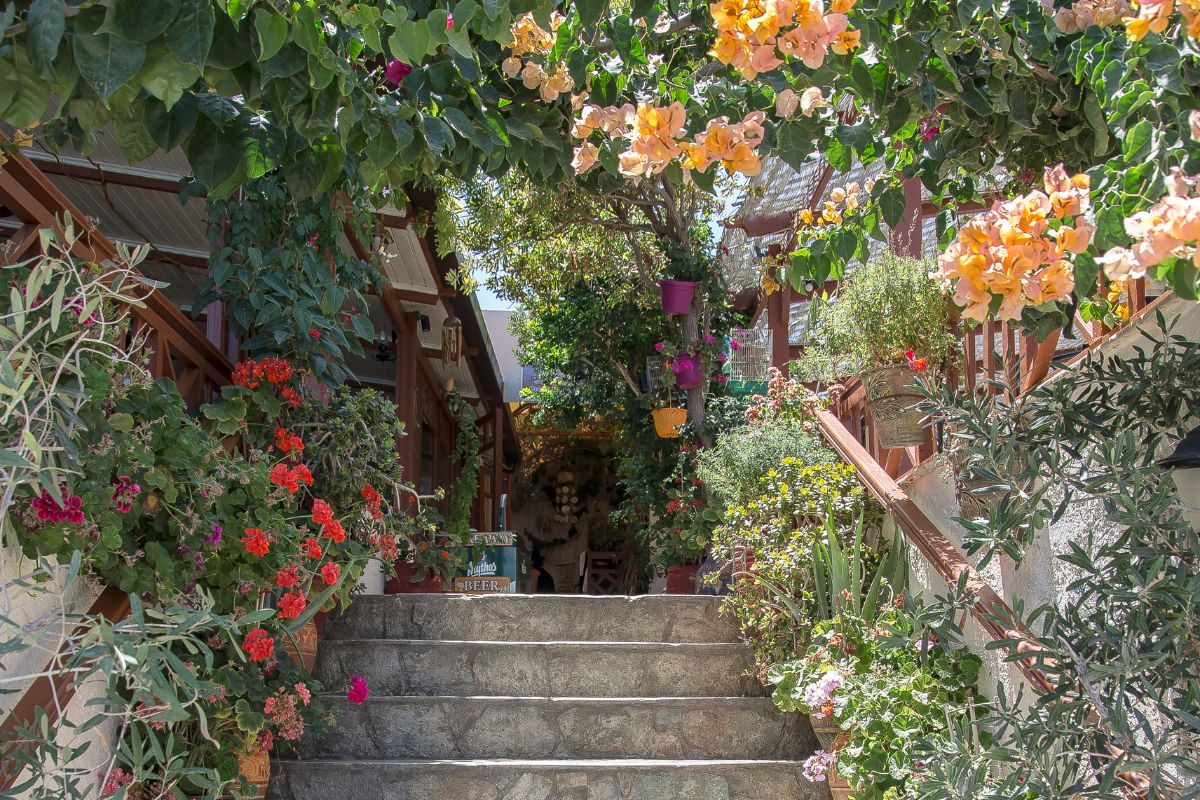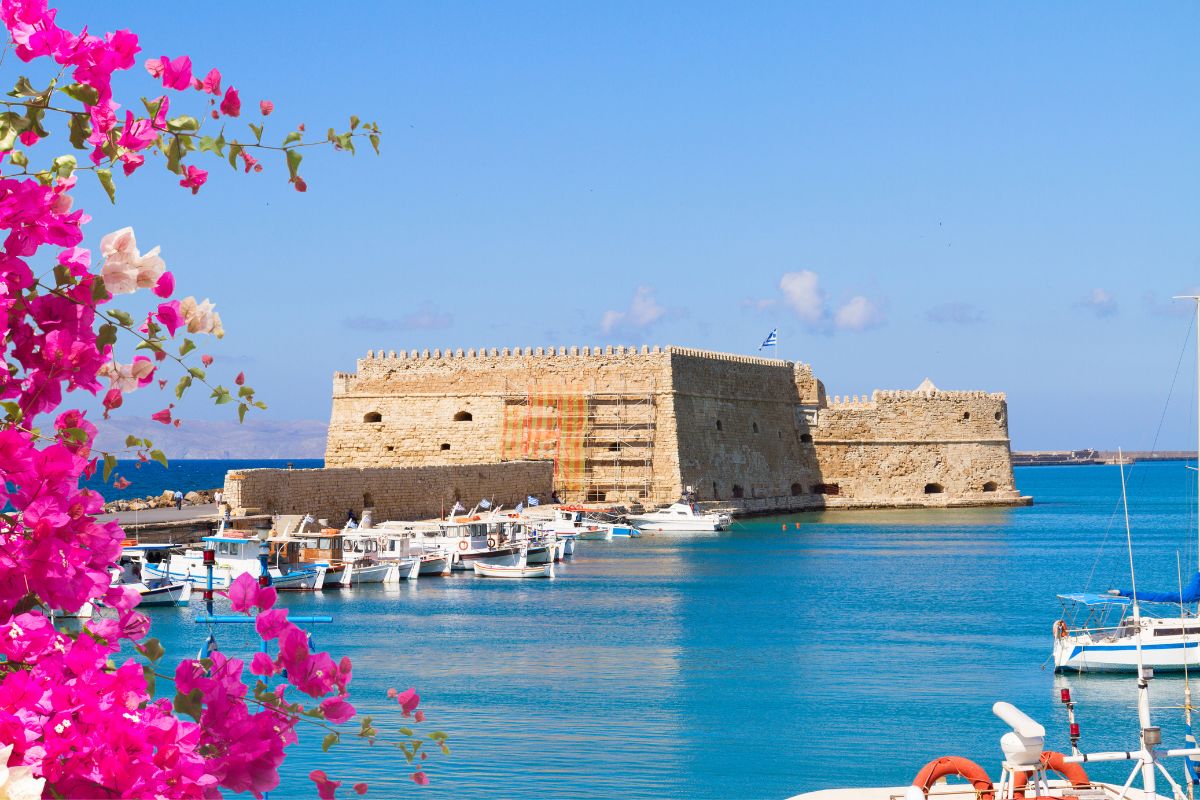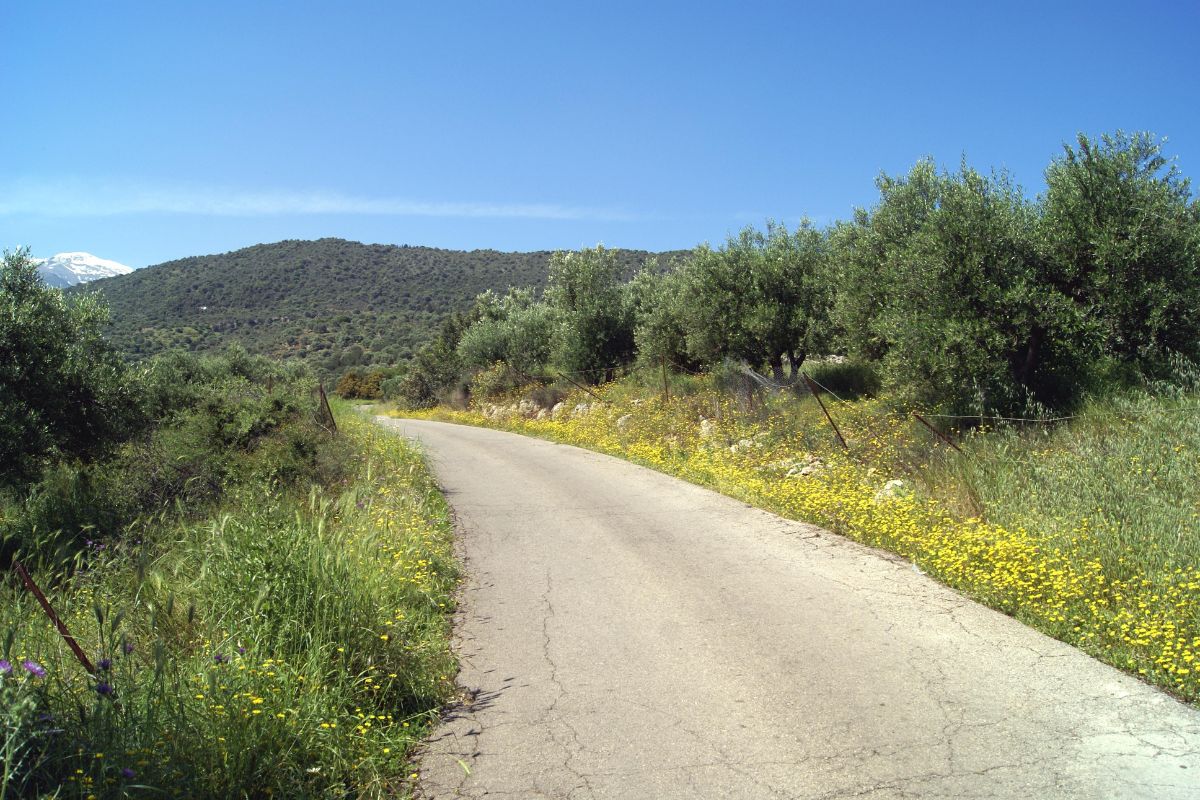Exploring Crete in March: Your Ultimate Guide

The island of Crete is famous for its old ruins, beautiful beaches, and tasty food.
Visiting Crete in March is special. It is a shoulder season month. March brings nice weather, fewer crowds, and a closer look at local life. This is an excellent time to explore Crete without the busy atmosphere of peak tourist season.

Why Visit Crete in March
Crete in March is a great time to enjoy the island’s beauty and charm before summer crowds arrive. The weather is great for outdoor activities like hiking and visiting historic sites. You can relax on quieter beaches and enjoy the local culture in a more personal way. Also, traveling to Crete in March usually means cheaper flights and accommodation than in the high season. This makes it a good time to explore the largest Greek island without spending too much.
The Charm of Off-Peak Travel
Traveling in March during the shoulder season lets you enjoy Crete at a calm pace. With fewer crowds, you face shorter lines at popular spots. You also get more room to admire ancient ruins and a better chance to meet locals and learn about their traditions. Picture yourself walking in charming villages, sipping coffee at a local café, and chatting with friendly people from Crete. You can do all this without feeling hurried. During quieter months like March, these genuine moments are easier to find. Think about the peace you feel while hiking in Samaria Gorge or walking along the beaches. This sense of calm is hard to find during the busy season. This is the real charm of traveling to Crete when it’s less crowded.

What to Expect Weather-wise in Crete in March
March in Crete is a lovely time as it moves from winter to spring. You might see some rain, but it is often just light showers. These showers usually clear up, making way for sunny days. This change helps make the island lively as it wakes up from winter.
Average Temperatures and Weather Conditions
March in Crete provides a mix of sunny days and occasional rain showers, offering a great opportunity to explore the island without the scorching summer heat. Be ready for varying weather, from chilly nights to warm days. The sea gets warmer as the month goes on, perfect for swimming, particularly on the southern coast, although the water might be cooler than in summer. Below are the average temperatures and rainfall for March:
- Average Daytime Temperature: 16°C (61°F)
- Average Nighttime Temperature: 10°C (51°F)
- Sea Temperature: 16°C (61°F)
- Average Rainfall: 60 mm (2.4 inches)

Top Activities and Attractions in Crete in March
March is a great time to discover the treasures of Crete without the large crowds. Enjoy the pleasant weather by going outside. You can hike through beautiful gorges or explore ancient ruins. Get a taste of local culture by joining events like Cretan Independence Day or visiting quieter villages. March allows you to feel the real spirit of Crete.
Outdoor Adventures and Nature Explorations
Embrace the mild weather and enjoy outdoor adventures. Hike through the Samaria Gorge and see the tall cliffs covered in wildflowers. In spring, the landscape becomes colorful, making your hike even more enjoyable. Explore many hiking trails on the island. They will take you through charming villages, olive groves, and stunning coastal views. You can find hidden beaches and coves that are great for a quiet time by the sea. Rent a bike and ride along beautiful paths. Feel the fresh air on your face while you explore Crete’s lovely countryside.
Cultural Events and Local Festivities
Experience the rich cultural tapestry of Crete in March by immersing yourself in local events and festivities. Discover the essence of Cretan traditions through various celebrations that showcase the island’s vibrant heritage. From religious observances like the solemn Good Friday processions to lively festivals marking the arrival of spring, there is no shortage of cultural experiences to engage with. Explore the charming towns of Heraklion, Rethymnon, and Chania, each offering unique insights into Cretan customs and local life. Don’t miss the opportunity to participate in events that bring communities together, celebrating music, dance, and gastronomy in the captivating setting of Crete’s historical streets.

What to Eat in Crete in March
Spring in Crete offers a lot of fresh, seasonal ingredients. This makes it a tasty time to enjoy food. Try dishes that highlight the island’s strong flavors and cooking customs. You can enjoy everything from tasty seafood to fragrant herbs and wild greens. Each bite will let you taste the true heart of Crete. Visit local taverns and restaurants to find traditional recipes that families have passed down for years. Feel free to ask for suggestions. The locals love to share their passion for Cretan food.
Seasonal Dishes and Where to Find Them
Spring on this Greek island brings many seasonal dishes that show off the freshest ingredients. You should visit local markets to see bright artichokes, wild greens, and fresh herbs. These are the main parts of Cretan food.
Here are some tasty options to try:
- Horta: This is boiled wild greens topped with olive oil and lemon juice. It is a key part of the Cretan diet.
- Artichoke dishes: Enjoy artichokes prepared in different ways, like fried, baked, or cooked with lamb and potatoes.
- Fresh seafood: Go to coastal tavernas for grilled octopus, calamari, and fish from local waters. These meals are very flavorful.
Check out local tavernas and family-run restaurants to taste these real dishes. Don’t forget to ask for «mageirefta,» which means home-cooked meals made from family recipes and fresh, local food.
Must-try Local Beverages
Complement your culinary journey with some unique drinks from Crete. Discover the fascinating world of Cretan wine. This wine comes from local grapes and shows off the island’s special land and climate. Don’t forget to try «raki.» This is a strong, flavorful spirit that people often offer as a sign of friendship. Sip it slowly to truly enjoy its taste, which is a key part of Cretan culture. You can also enjoy refreshing orange juice. It’s made from fresh oranges grown on the island and is full of vitamins and sunshine. If you like coffee, enjoy a strong Greek coffee. This drink is a big part of life in Greece and is enjoyed all day.
March is a great time to visit Crete if you want a peaceful experience. The quieter season lets you enjoy the local culture and tasty food. The weather is mild, and nature starts to bloom, making it perfect for outdoor fun. Remember to dress in layers for the changing weather. Try seasonal dishes and local drinks while enjoying cultural events.

Frequently Asked Questions
Is March too cold for beach activities in Crete?
While the sea temperature in Crete in March is cooler than in the summer months, the south coast warms up faster. This is due to winds coming from the north coast of Africa. The water might feel a bit refreshing for swimming. However, it is a nice time for walks along the shore.
What is the best time to visit Crete?
Crete is lovely all year long. The best time to visit depends on what you like. In the high season, which is the summer months, you can enjoy hot weather and lively nightlife. If you prefer nice weather and fewer crowds, visit during the shoulder seasons, like spring and autumn.
What should I wear in Crete in March?
The dress code for Crete in March is easygoing and cozy. Be sure to pack layers so you can adjust to the changing temperatures. Bring light clothes for the warmer days and a jacket for the cooler evenings. You will need comfortable shoes for outdoor activities and exploring the island.
